News
-
 Quantum Physics
Quantum PhysicsLight trick can retrieve missed messages
Even if photons pass you by, you can still snatch a signal from their electromagnetic wake, physicists propose.
By Andrew Grant -
 Astronomy
AstronomySupernova hurls star out of the galaxy
The fastest-moving star to leave the Milky Way might have been launched by a nearby exploding star.
-
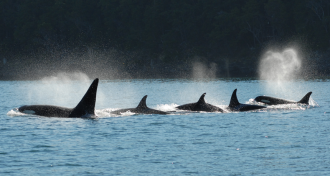 Animals
AnimalsKiller whales follow postmenopausal leaders
Taking the lead on salmon hunts may be postmenopausal killer whales’ way of sharing their ecological knowledge.
By Susan Milius -
 Health & Medicine
Health & MedicineHepatitis E vaccine shows strong coverage
A large trial in China indicates that a vaccine can provide 87 percent protection against the hepatitis E virus, which infects 20 million people a year.
By Nathan Seppa -
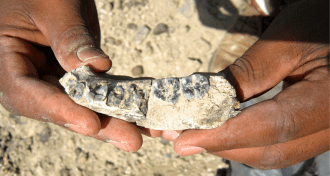 Humans
HumansAncient jaw may hold clues to origins of human genus
A 2.8-million-year-old fossil from Ethiopia raises questions about the origins and evolution of the human genus, Homo.
By Bruce Bower -
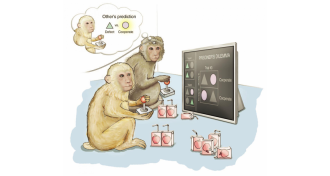 Neuroscience
NeuroscienceBrain cells predict opponent’s move in game-playing monkeys
Newly discovered brain cells help monkeys predict whether a companion will cooperate.
-
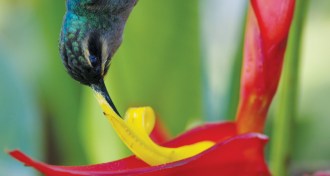 Plants
PlantsTropical plant knows whose bill is in its flowers
A rainforest plant avoids inbreeding by accepting pollen only from hummingbird species that must travel to reach it.
-
 Quantum Physics
Quantum PhysicsTrying to get the down-low on gravity
A twist on a classic quantum mechanics experiment could lead to the discovery of elusive gravitons.
By Andrew Grant -
 Astronomy
AstronomyPlanet collisions may have rearranged crowded solar systems
Solar systems discovered by Kepler with just one or two worlds may be remnants of planet families that were once far more crowded.
-
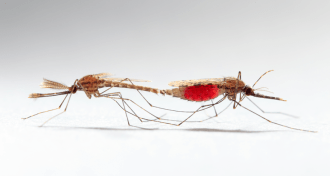 Life
LifeSexual conflict in mosquitoes may have worsened spread of malaria
Sexual conflict in Anopheles mosquitoes may have intensified their power to fuel human malaria.
By Susan Milius -
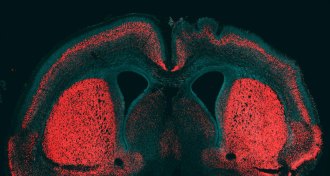
-
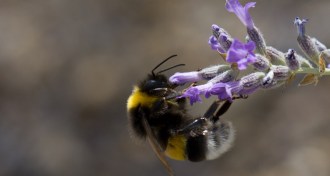 Neuroscience
NeuroscienceBees may merge their flower memories
Bumblebees sometimes prefer fake flowers with the combined patterns and colors of ones seen before, suggesting they merge memories of past experiences.